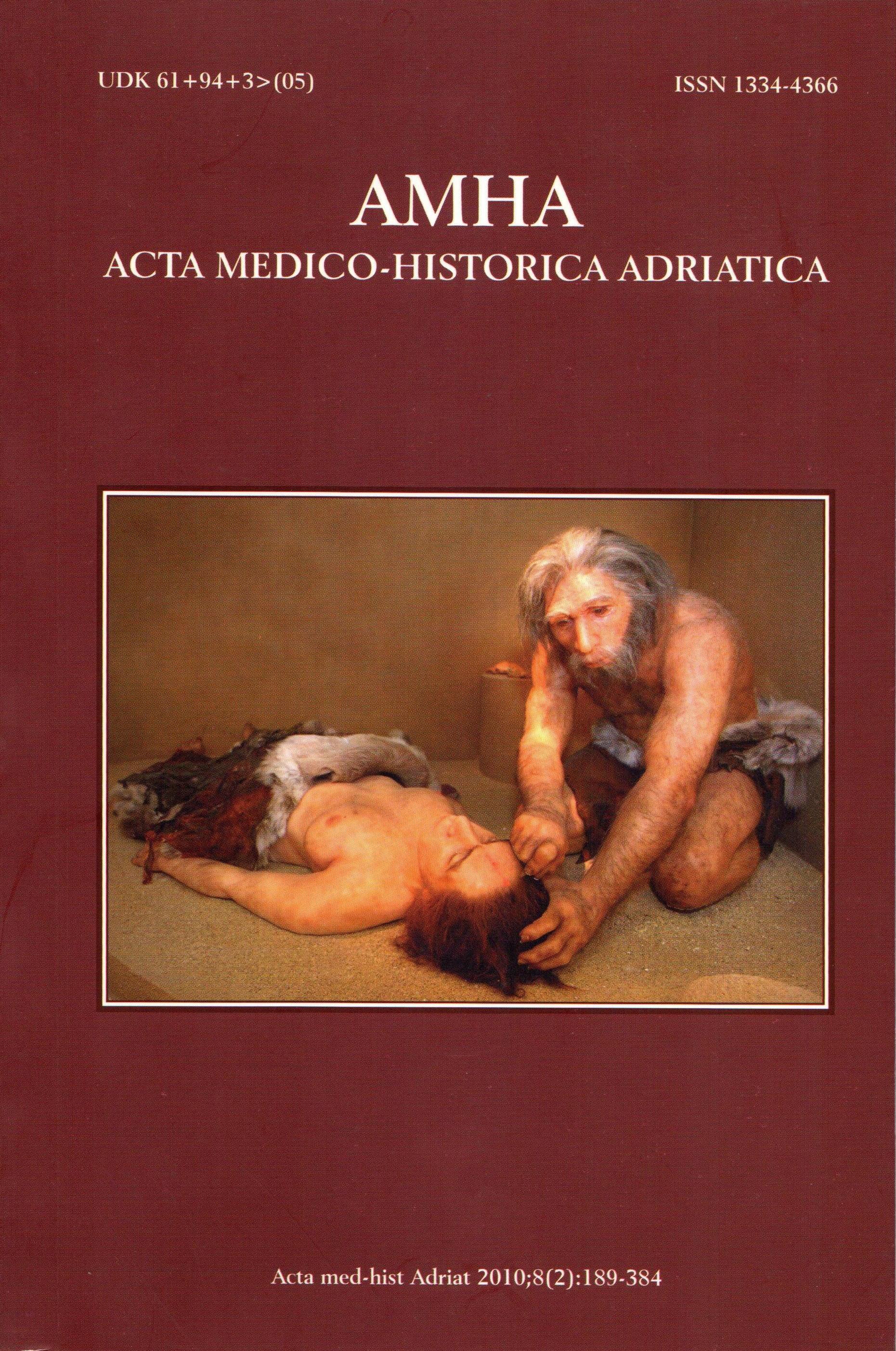SANITARY CONDITIONS IN THE CITY OF FIUME (RIJEKA) AT THE TURN OF THE 19 CENTURY
Keywords:
Sanitary conditions, public health, 19th and 20th century, Fiume (Rijeka)Abstract
The Municipal Sanitary Commission (Commisione sanitaria municipale) was founded in Fiume (Rijeka) at the end of the 19th century. The well known physician of the municipal hospital, Dr. Antonio Grossich was its first president. In his inaugural speech he pointed out the mortality within the city during the last decade as 28 ‰. Based on the monthly reports from the municipal physicians, Dr. Giovanni Benzan evaluated the mortality within the city as 25,9 ‰ in 1900. Mortality of children under age of five accounted for almost half of the estimated mortality (11,4‰), while contribution of tuberculosis was the second (5,8‰). Feeding with cow milk caused considerable mortality among small children, thus pointing to the necessity for milk control in the market. He also proposed destruction and resettling the population from the inner city area with poor sanitary conditions. In his opinion, municipal authorities’ duty was to educate the population to promote hygiene, e.g. disinfection of homes and cloth, in order to prevent tuberculosis. Dr. Benzan complained about hygiene in the old inadequate school buildings, with technical faults. He proposed the systematic check-up of school children. He pointed out the importance of the new water supply system, that led to eradication of typhus in the city. The problem of dusty roads though remained, and his solution was to wash the streets. He promoted food control, hygiene in public places and disinfection of sewage water. His plans included building up of the new municipal hospital, waste incinerator, crematorium, public and sea-side bath, new hostel for workers immigrating into the city.


